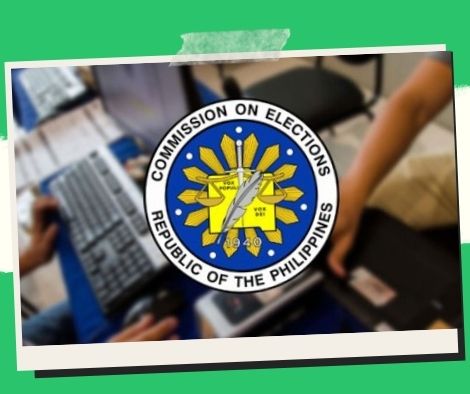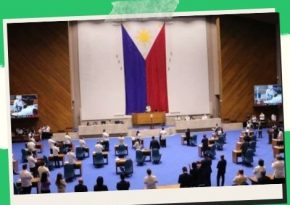
The Commission on Elections (Comelec) has issued rules on vote-buying offenses.
MANILA, Philippines — On Wednesday, the Commission on Elections (Comelec) reminded registered voters that vote-buying and vote-selling are illegal.
The voting public was warned about the repercussions of violating the law in a memorandum published by Comelec Commissioner Aimee Ferolino, chairperson of Task Force Bigay.
It also instructed law enforcement authorities to vigorously enforce the statutory ban on vote-buying and selling.
The act of vote-buying and vote-selling is punishable as an electoral offense under Section 261(a) of Batas Pambansa Bilang 881, also known as the Omnibus Election Code (OEC).
Any person who gives, offers, or promises money or anything of value, any office or employment, franchise or grant, public or private, or makes or offers to make an expenditure, directly or indirectly, or causes an expenditure to be made to any person, association, corporation, entity, or community in order to induce anyone or the general public to vote for or against any candidate, or to withhold his vote in the election, is guilty of the violation.
Any individual, organization, corporation, group, or community that solicits or accepts, directly or indirectly, any expenditure or promise of any public or private office or job.
“Any person, association, corporation, group, or community commits the election offense of vote-selling when the following elements are present: any person, association, corporation, group, or community solicits or receives, directly or indirectly, any expenditure or promise of any office or employment, public or private, with the purpose of inducing anyone or the general public to vote for or against any candidate or withhold his vote in the election, or to vote for or against any aspirant for the nomination or choice, and the purpose is to induce
Payment of permit-to-win (PTW) and permit-to-campaign (PTC) fees is also regarded as a component of such criminality (PTC).
“The payment of PTW and Permit-to-Campaign PIC to the Communist Party of the Philippines-New People’s Army-National Democratic Front (CPP-NPA-NDF) and its linked groups is covered by the statute outlawing vote-buying and vote-selling, as per Comelec Resolution No. 22-0179. According to the memorandum, “any candidate boosting his or her candidacy by paying PTW and PIC to the CPP-NPA-NDF and its linked organizations may be prosecuted under Section 261 of the OEC.”
“Extortion actions may also be considered violations of Section 4 of Republic Act (RA) No. 101681 and Section 12 of Republic Act (RA) No. 114792,” it added.
The principals, accomplices, and accessories, as specified in the Revised Penal Code, are those who are criminally accountable for election offenses.
“If the one responsible is a political party or an entity, its president or head, officials and employees performing duties related to the offense committed, and its members who may be principals, accomplices, or accessories shall be liable, in addition to the liability of such party or entity. (Section 263, OEC),” it stated.
“Any person found guilty of an election violation under this Code must be sentenced to a term of imprisonment of not less than one year but not more than six years, with no possibility of parole.” In addition, the guilty person will be barred from holding public office and will have his or her right to vote taken away. If he is a foreigner, he will be sentenced to deportation, which will be carried out once he has served his sentence, according to the memorandum.
Any political party found guilty will be sentenced to pay a fine of at least PHP10,000, which will be imposed when criminal action has been brought against them and their corresponding officials have been proven guilty.
The Comelec will also establish a Citizen Complaint Center (CCC), which will act as a communication avenue for citizens to report vote-buying and vote-selling occurrences that they have directly witnessed.
The complaints can be sent to the local field offices’ official email addresses, the Commission’s Law Department, or the offices of the province, city, and municipal prosecutors.
Local election offices must submit a report to the Comelec’s Law Department detailing all vote-buying and vote-selling cases brought before their respective field offices.
Similarly, the prosecuting arms of the Department of Justice (DOJ) are required to submit a bi-weekly report on all cases of vote-buying and vote-selling filed with the appropriate local and national prosecuting offices.
Save/Share this story with QR CODE
Disclaimer
This article is for informational purposes only and does not constitute endorsement of any specific technologies or methodologies and financial advice or endorsement of any specific products or services.
 Need to get in touch?
Need to get in touch?

We appreciate your reading. 
1.) 

Your DONATION will be used to fund and maintain NEXTGENDAY.com
Subscribers in the Philippines can make donations to mobile number 0917 906 3081, thru GCash.
3.) 
4.) 
AFFILIATE PARTNERS

World Class Nutritional Supplements - Buy Highest Quality Products, Purest Most Healthy Ingredients, Direct to your Door! Up to 90% OFF.
Join LiveGood Today - A company created to satisfy the world's most demanding leaders and entrepreneurs, with the best compensation plan today.

 Business, Finance & Technology
Business, Finance & Technology

 Business Technology, Finance Technology & Information Technology
Business Technology, Finance Technology & Information Technology





